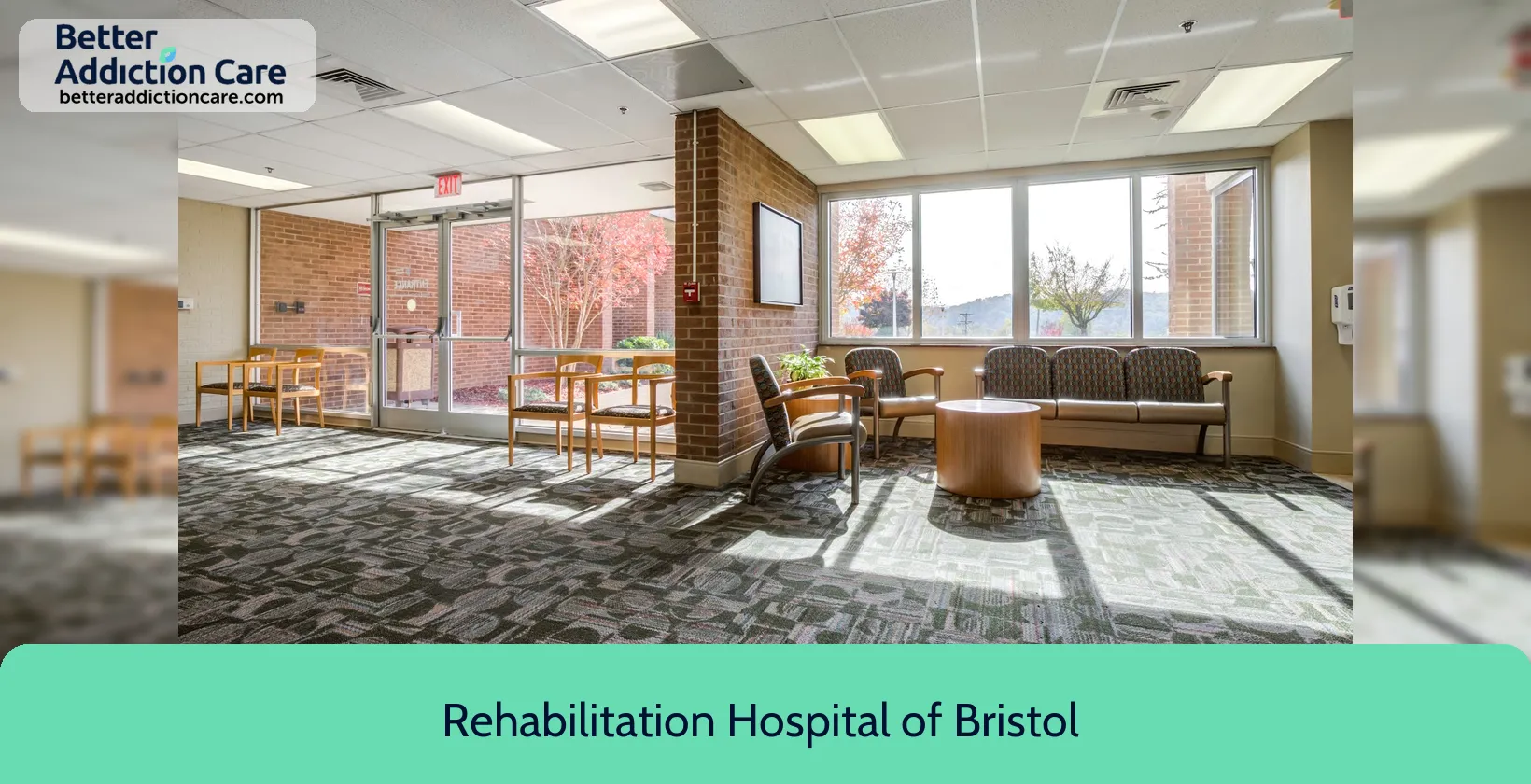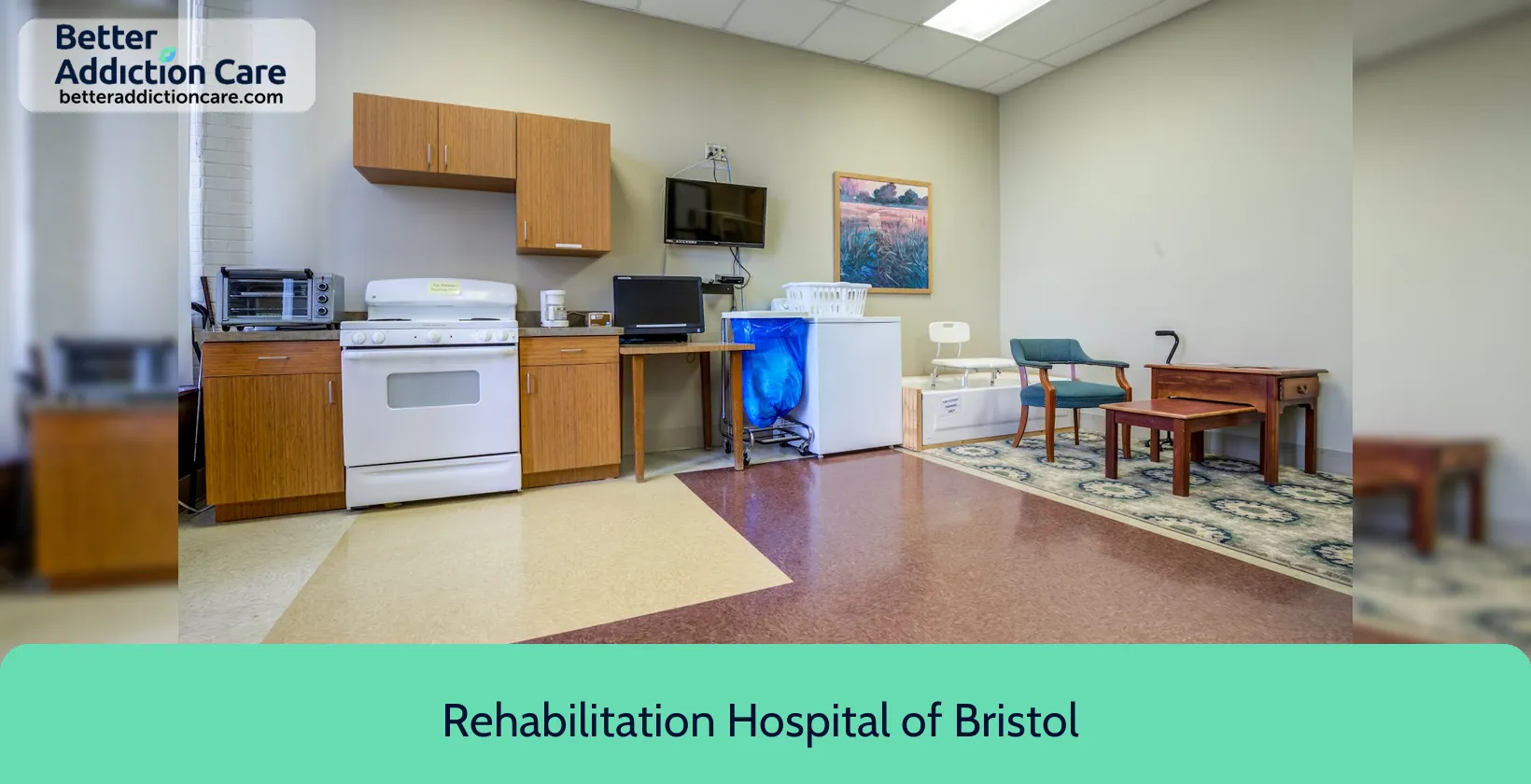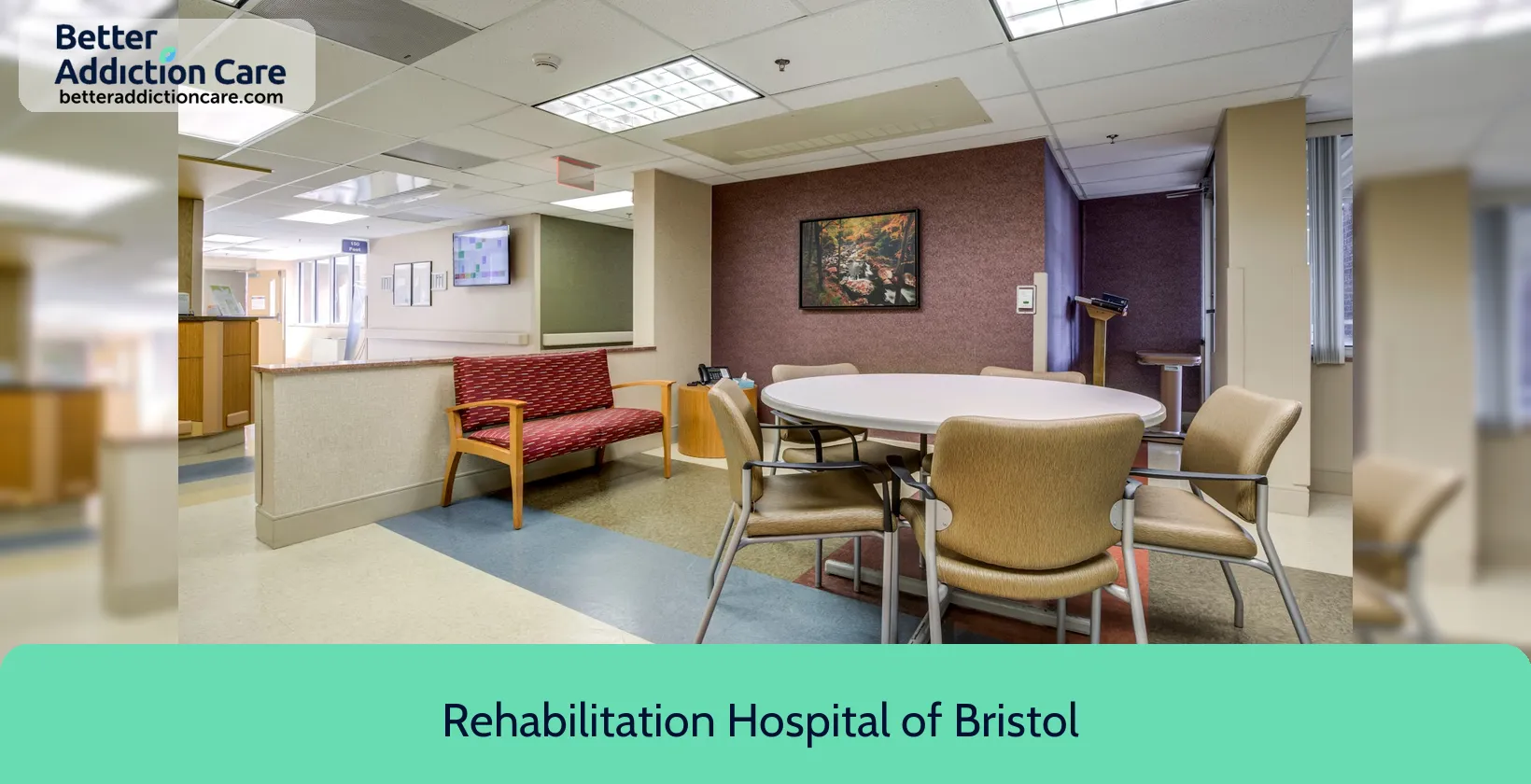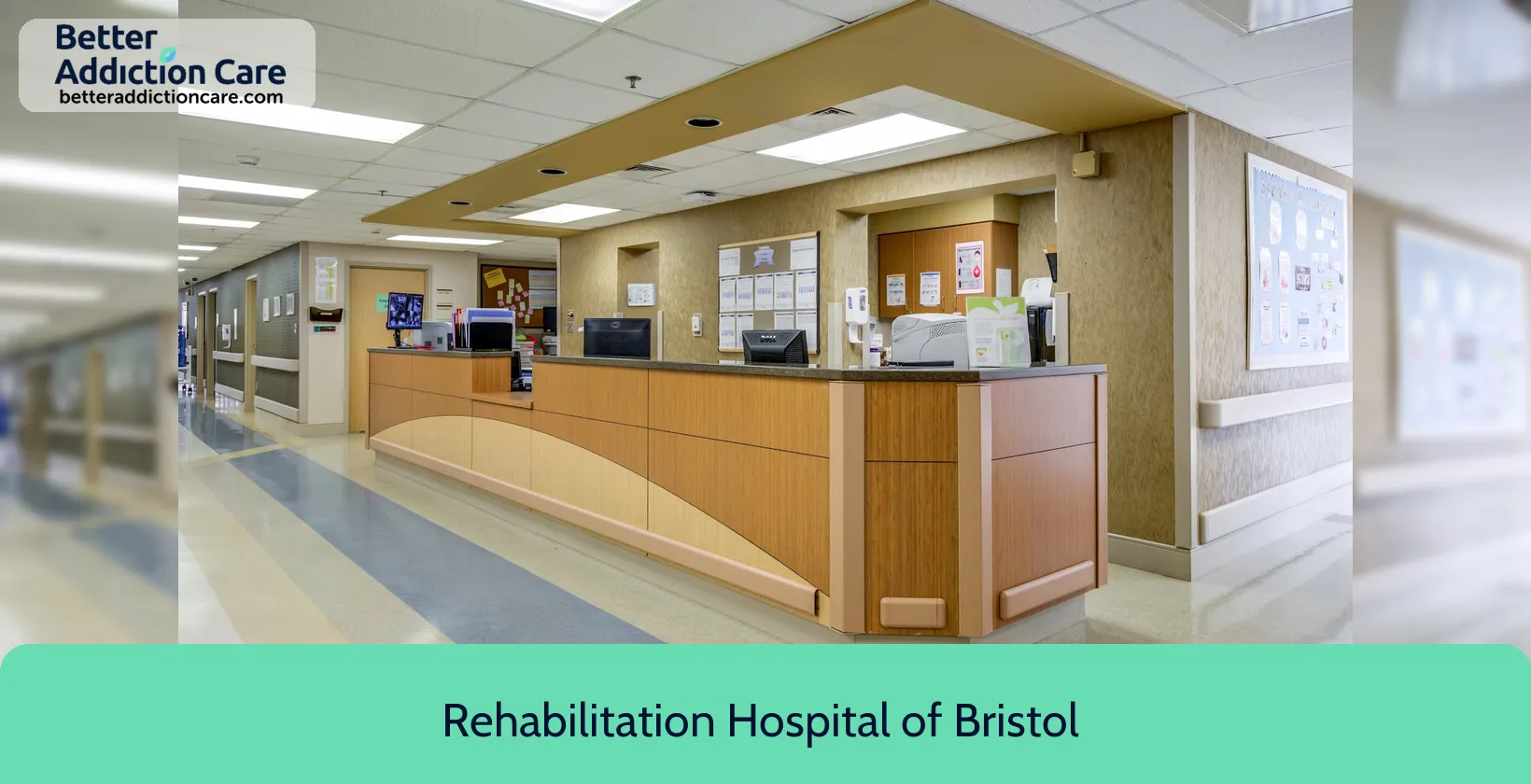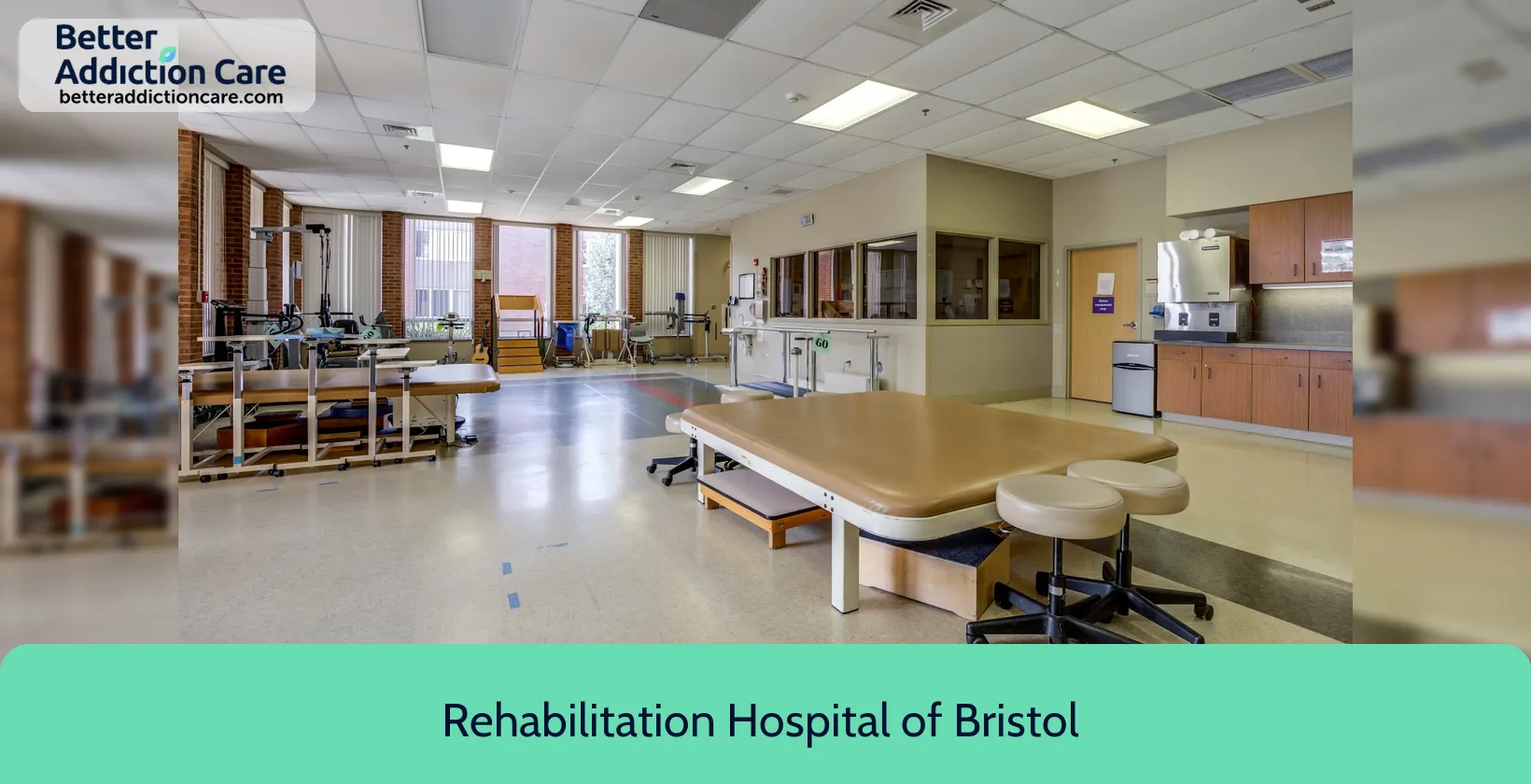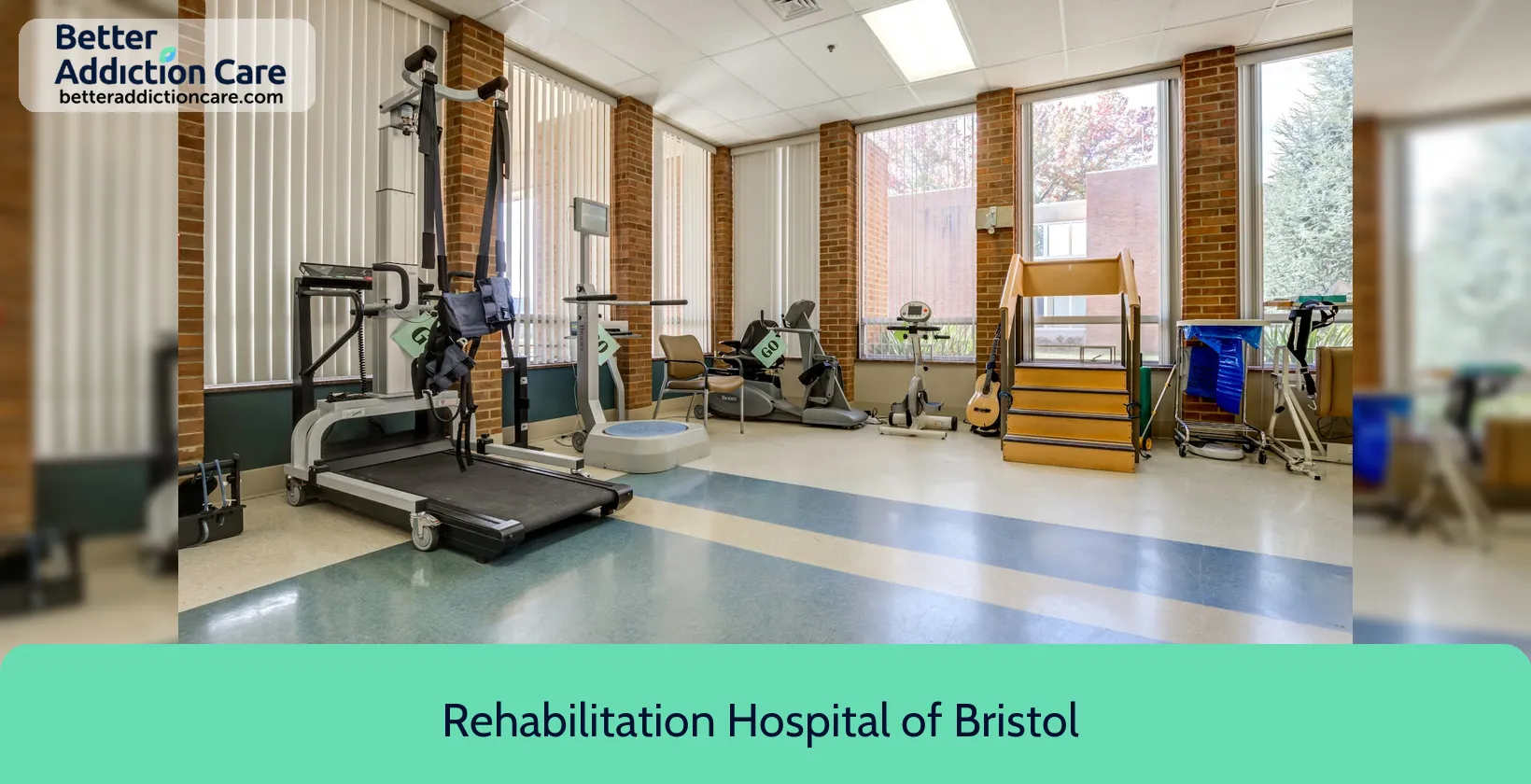Rehabilitation Hospital of Bristol - Encompass Health
Overview
Rehabilitation Hospital of Bristol - Encompass Health is a mental health treatment center for people seeking treatment near Bristol County. As part of their treatment modalities for recovery, Rehabilitation Hospital of Bristol - Encompass Health provides couples/family therapy, group counseling, and cognitive behavioral therapy during treatment. Rehabilitation Hospital of Bristol - Encompass Health is located in Bristol, Virginia, accepting cash or self-payment for treatment.
Rehabilitation Hospital of Bristol - Encompass Health at a Glance
Payment Options
- Cash or self-payment
- Medicaid
- Medicare
- State-financed health insurance plan other than Medicaid
- Private health insurance
Assessments
- Screening for tobacco use
- Comprehensive mental health assessment
- Comprehensive substance use assessment
Age Groups
- Seniors or older adults
- Young adults
- Adults
- Seniors
Ancillary Services
- Intensive case management
- Case management service
- Diet and exercise counseling
- Education services
- Family psychoeducation
Highlights About Rehabilitation Hospital of Bristol - Encompass Health
6.77/10
With an overall rating of 6.77/10, this facility has following balanced range of services. Alcohol Rehabilitation: 8.00/10, Drug Rehab and Detox: 6.00/10, Insurance and Payments: 6.00/10, Treatment Options: 7.09/10.-
Alcohol Rehabilitation 8.00
-
Treatment Options 7.09
-
Drug Rehab and Detox 6.00
-
Insurance and Payments 6.00
Treatment At Rehabilitation Hospital of Bristol - Encompass Health
Treatment Conditions
- Mental health treatment
- Substance use treatment
- Co-occurring Disorders
Care Levels
- Hospital inpatient/24-hour hospital inpatient
Treatment Modalities
- Couples/family therapy
- Group counseling
- Cognitive behavioral therapy
- Dialectical behavior therapy
- Integrated Mental and Substance Use Disorder treatment
Ancillary Services
Languages
- Sign language services for the deaf and hard of hearing
Additional Services
- Pharmacotherapies administered during treatment
- HIV testing
Special Programs
- Clients with co-occurring mental and substance use disorders
- Veterans
- Active duty military
- Members of military families
- Clients with HIV or AIDS
Common Questions About Rehabilitation Hospital of Bristol - Encompass Health
Contact Information
Read our Most Recent Article About Drug Addiction
DISCLAIMER: The facility name, logo and brand are the property and registered trademarks of Rehabilitation Hospital of Bristol - Encompass Health, and are being used for identification and informational purposes only. Use of these names, logos and brands shall not imply endorsement. BetterAddictionCare.com is not affiliated with or sponsored by Rehabilitation Hospital of Bristol - Encompass Health.


